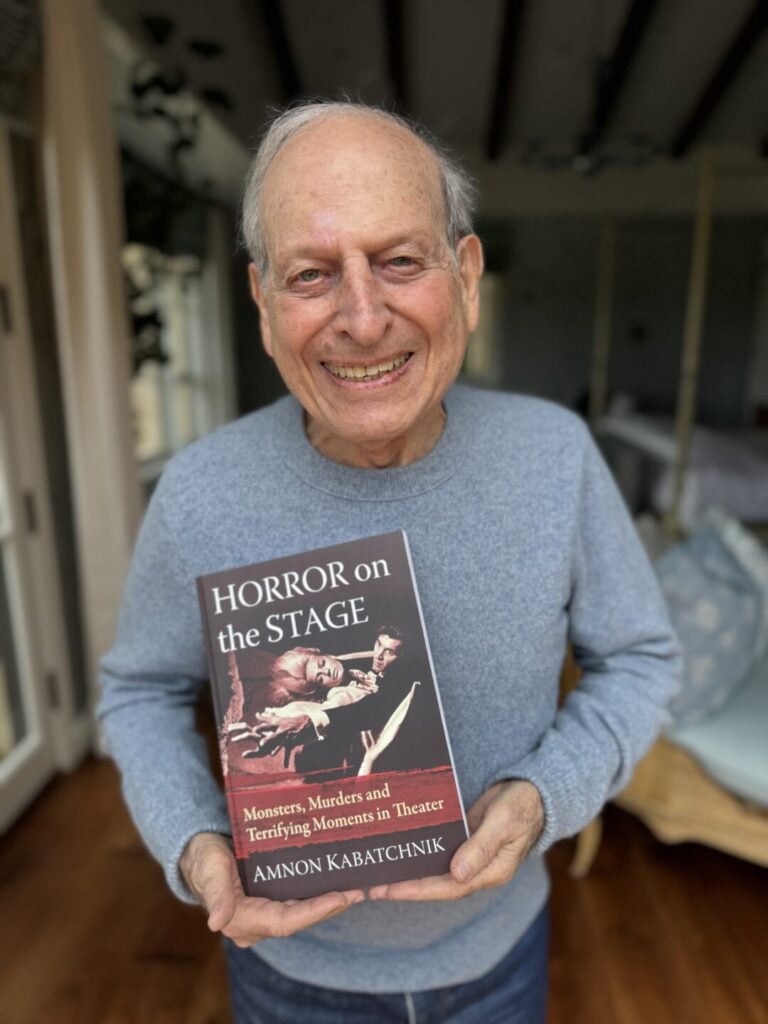
Following find an interview with author Amnon Kabatchnik.
Dear Indie Reader Awards Committee, I am deeply honored to accept the 2024 Indie Reader Award in the Education Category for “Horror on the Stage”. This recognition highlights the most terrifying moments in theater history, shedding light on the power of storytelling to evoke intense emotions and provoke thought. I extend my heartfelt thanks to the committee for this honor, as well as to my readers, publishers, and supporters who have been instrumental in bringing this work to fruition. Receiving this award inspires me to continue exploring the profound impact of theater on our collective consciousness. Thank you for this esteemed recognition and for your commitment to celebrating independent voices in literature. With sincere gratitude, Amnon Kabatchnik Author, “Horror on the Stage”
What is the name of the book?
Horror on the Stage: Monsters, Murders and Terrifying Moments in Theater
What’s the book’s first line?
The first unnerving moment in theater history occurred when an Ancient Greek audience entered the Athens arena for a production of Aeschylus’s Prometheus Bound (c. 480 BCE).
What’s the book about? Give us the “pitch”.
The book highlights the most terrifying moments in theater history, from classical plays by Aeschylus and Euripides to the violence of the Grand Guignol productions in 19th century France.
What inspired you to write the book? A particular person? An event?
During the last twelve years or so. I published a series of books under the title “Blood on the Stage: Milestone Plays of Murder, Mystery, and Detection,” covering in each entry a plot synopsis, production data, the opinions of critics and scholars, and biographical sketches of the playwrights and key actors-directors. It was a short step to move to the genre of horror.
What’s the main reason someone should really read this book?
“Horror on the Stage” should appeal to theater students, scholars, researchers, and those who are fascinated by the genre of suspense, both in print and on the stage. Many of the entries should be investigated as a source for a movie or a television series.
When did you first decide to become an author?
Throughout my adult life I have been involved in the theater, directing plays Off-Broadway, on the road, in summer-stock, and abroad (Canada, Israel). I also wrote book and movie reviews for several publications. It was a natural step to move into writing books about plays.
How much time do you generally spend on your writing?
With the exception of directing an Off-Broadway production, during the last twelve years I have written twelve books — working on them full-time, day and night.
Would you go traditional if a publisher came calling? If so, why?
Fortunately, I have found several small-press publishers who became interested in publishing my books.
Is there something in particular that motivates you (fame? fortune?)
I do it not for fame or money; these are truly labors of love.
Which writer, living or dead, do you most admire?
In my readings, I am old fashioned. I still adore the detective novels of Conan Doyle, Ellery Queen, Agatha Christie, Rex Stout, and Dorothy L. Sayers. Among the main stream authors — Oscar Wilde, Mark Twain, Robert Louis Stevenson, Jane Austen, Leo Tolstoy, Maxim Gorky, Graham Greene, Jean Anouilh, Isabel Allende, Ken Follett, Shirley Jackson, John Grisham, and Jeffrey Archer.
Which book do you wish you could have written?
Don Quixote by Niguel de Cervantes (1605).
